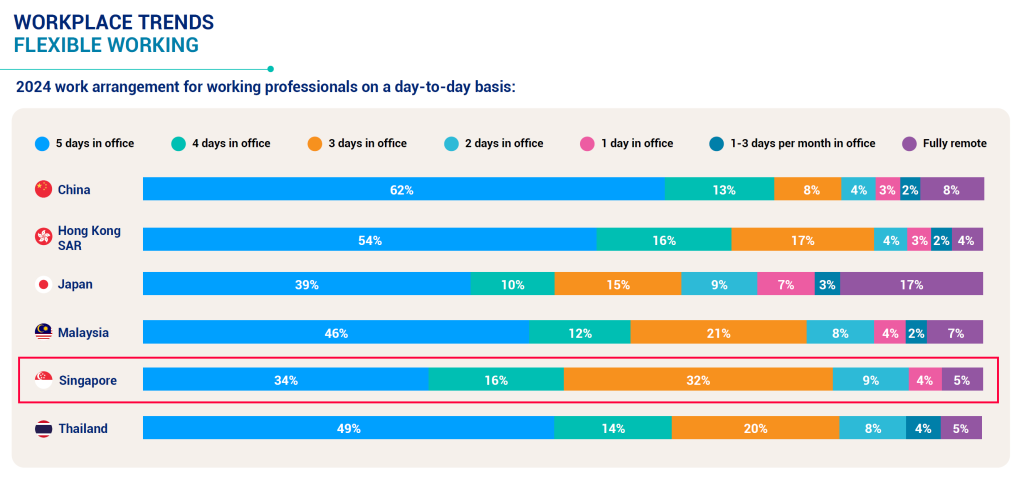Sinkees can lan lan squeeze the balls. 555Taxpayers money spent already. Doesnt matter if the project is a failure. So, what can sinkies do?
-
IP addresses are NOT logged in this forum so there's no point asking. Please note that this forum is full of homophobes, racists, lunatics, schizophrenics & absolute nut jobs with a smattering of geniuses, Chinese chauvinists, Moderate Muslims and last but not least a couple of "know-it-alls" constantly sprouting their dubious wisdom. If you believe that content generated by unsavory characters might cause you offense PLEASE LEAVE NOW! Sammyboy Admin and Staff are not responsible for your hurt feelings should you choose to read any of the content here. The OTHER forum is HERE so please stop asking.
You are using an out of date browser. It may not display this or other websites correctly.
You should upgrade or use an alternative browser.
You should upgrade or use an alternative browser.
PAP's Chennai Biz Park has turned into a colossal failure
- Thread starter Hmv
- Start date
- Joined
- Oct 15, 2023
- Messages
- 8,680
- Points
- 113
Many cannot find a girlfriend, so "reignite" through "self-service".For curing SG infertility problem mah. Very likely sinki man has no sex drive and need to reignite de woh. U see the forum is filled with PG Ana MG, u know liao
- Joined
- May 16, 2023
- Messages
- 35,920
- Points
- 113
Topup a little can find good service providers and generate domestic service marketMany cannot find a girlfriend, so "reignite" through "self-service".
- Joined
- May 16, 2023
- Messages
- 35,920
- Points
- 113
DIY will further dampen the needsMany cannot find a girlfriend, so "reignite" through "self-service".
- Joined
- Oct 15, 2023
- Messages
- 8,680
- Points
- 113
It is alright to play by yourself, but don't play with yourself. Hahaha!DIY will further dampen the needs
- Joined
- Aug 10, 2008
- Messages
- 12,441
- Points
- 113
1.How to have F****** sex drive when the basic costs of flat is a big few hundred grand for a decent flat ?For curing SG infertility problem mah
Very likely sinki man has no sex drive and need to reignite de woh
U see the forum is filled with PG Ana MG, u know liao
2. How to have Fucking sex drive when govt keep empowering women to a state whereby they are treated like a lord both in work and home ?
3. How to have Fucking sex drive when your woman has to work and produce babies at one single go ?
- Joined
- May 16, 2023
- Messages
- 35,920
- Points
- 113
Yeah….. more privacy mahIt is alright to play by yourself, but don't play with yourself. Hahaha!

Go LOS for r & r.DIY will further dampen the needs
- Joined
- May 16, 2023
- Messages
- 35,920
- Points
- 113
ChangmaiGo LOS for r & r.
- Joined
- Oct 15, 2023
- Messages
- 8,680
- Points
- 113
The night life is great in Thailand and Taiwan.SG need a QE to reignite nightlife industry
- Joined
- May 16, 2023
- Messages
- 35,920
- Points
- 113
Then all problem solvedThe night life is great in Thailand and Taiwan.
View attachment 215356View attachment 215357
Jiuhu Kia will settle here
SG lgbt will be straighten
SG young’s one can revitalise
- Joined
- Oct 15, 2023
- Messages
- 8,680
- Points
- 113
DIY sounds so sad. How about dating the "Palm Sisters" (left and right palm of the hands)?Yeah….. more privacy mah
- Joined
- Oct 15, 2023
- Messages
- 8,680
- Points
- 113
I have yet to see a 90 degree erection. It will be like a diving board! LOL!Then all problem solved
Jiuhu Kia will settle here
SG lgbt will be straighten
SG young’s one can revitalise
PattayaChangmai
Sinkees very pitiful got to face so many financial problems n stresses of course cannot get a strong n consistent erection.5551.How to have F****** sex drive when the basic costs of flat is a big few hundred grand for a decent flat ?
2. How to have Fucking sex drive when govt keep empowering women to a state whereby they are treated like a lord both in work and home ?
3. How to have Fucking sex drive when your woman has to work and produce babies at one single go ?
- Joined
- Oct 15, 2023
- Messages
- 8,680
- Points
- 113
The govt's assertion that CECA significantly benefits S'pore is being challenged by public concerns about job security, career advancement and the future of our children. Recent studies suggest a high level of public anxiety regarding the govt's ability to ensure a prosperous future for S'poreans and the next generation. This raises questions about public confidence in the current leadership. Remember this at the next GE.
- Joined
- May 16, 2023
- Messages
- 35,920
- Points
- 113
Oops….who will fund my CPF when I retire?The govt's assertion that CECA significantly benefits S'pore is being challenged by public concerns about job security, career advancement and the future of our children. Recent studies suggest a high level of public anxiety regarding the govt's ability to ensure a prosperous future for S'poreans and the next generation. This raises questions about public confidence in the current leadership. Remember this at the next GE.
- Joined
- Oct 15, 2023
- Messages
- 8,680
- Points
- 113
Your CPF may not be so easily withdrawn when you need it the mostOops….who will fund my CPF when I retire?
- Joined
- May 16, 2023
- Messages
- 35,920
- Points
- 113
Free like a Singaporean: 50% of city professionals work no more than 3 days in office per week
23 mins ago

While many companies in America are pushing for full return to office of all of their employees for five days a week, including tech giants like Amazon, with Elon Musk recently extending his demands to all federal employees currently evaluated by his Department of Government Efficiency (DOGE), Singapore seems to be bucking the trend.Disclaimer: Unless otherwise stated any opinions expressed below belong solely to the author.
Not only did the official Tripartite Guidelines for Flexible Work Arrangements (FWA) take effect in December—a product of consultation between the government, unions and employers—but the companies themselves have embraced the hybrid work model following the pandemic.
Thanks to a survey included in Hays’ 2025 Asia Salary Guide we now know exactly how common the practice is in Singapore and several other Asian nations.
Free at work
As it turns out Singaporeans enjoy by far the most freedom of all surveyed nations, followed—surprisingly perhaps—by Japan, where nearly a fifth of professionals are permitted fully remote work (although nearly 40% are still expected to show up at the office five days a week).In Singapore the traditional full-time arrangement applies only to a third of white-collar workers:
 Image Credit: Hays
Image Credit: HaysFull 66%, or two thirds, of Singaporeans are already given at least one day to work from home and for 50% that is two or more.
By comparison, 62% of mainland Chinese are expected to work as usual and even in the more liberal Hong Kong it is still a requirement for over 50% of the workforce.
Even in neighbouring Malaysia, usually considered more relaxed and less disciplined than Singapore, close to half of the workers are expected to turn up daily.
Is hybrid work here to stay?
For the time being it certainly is but employers will look closely at how companies like Amazon, Tesla or JP Morgan—which have been most vocal about full-time return to office policies—function compared to their more flexible counterparts.CEOs opposing remote work do have a point saying that it impedes collaboration and may lead to breakdowns in teamwork, as people who fundamentally have to cooperate as a group don’t see each other often enough, don’t build relationships, and don’t communicate effectively.
This is especially true for work on complex projects where many people are involved.
Similar threads
- Replies
- 4
- Views
- 731
- Replies
- 22
- Views
- 2K
- Replies
- 11
- Views
- 1K
- Replies
- 79
- Views
- 4K
